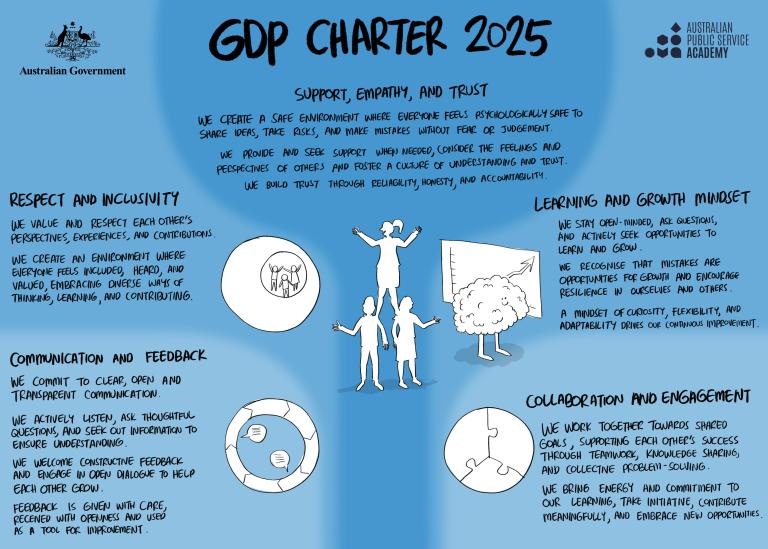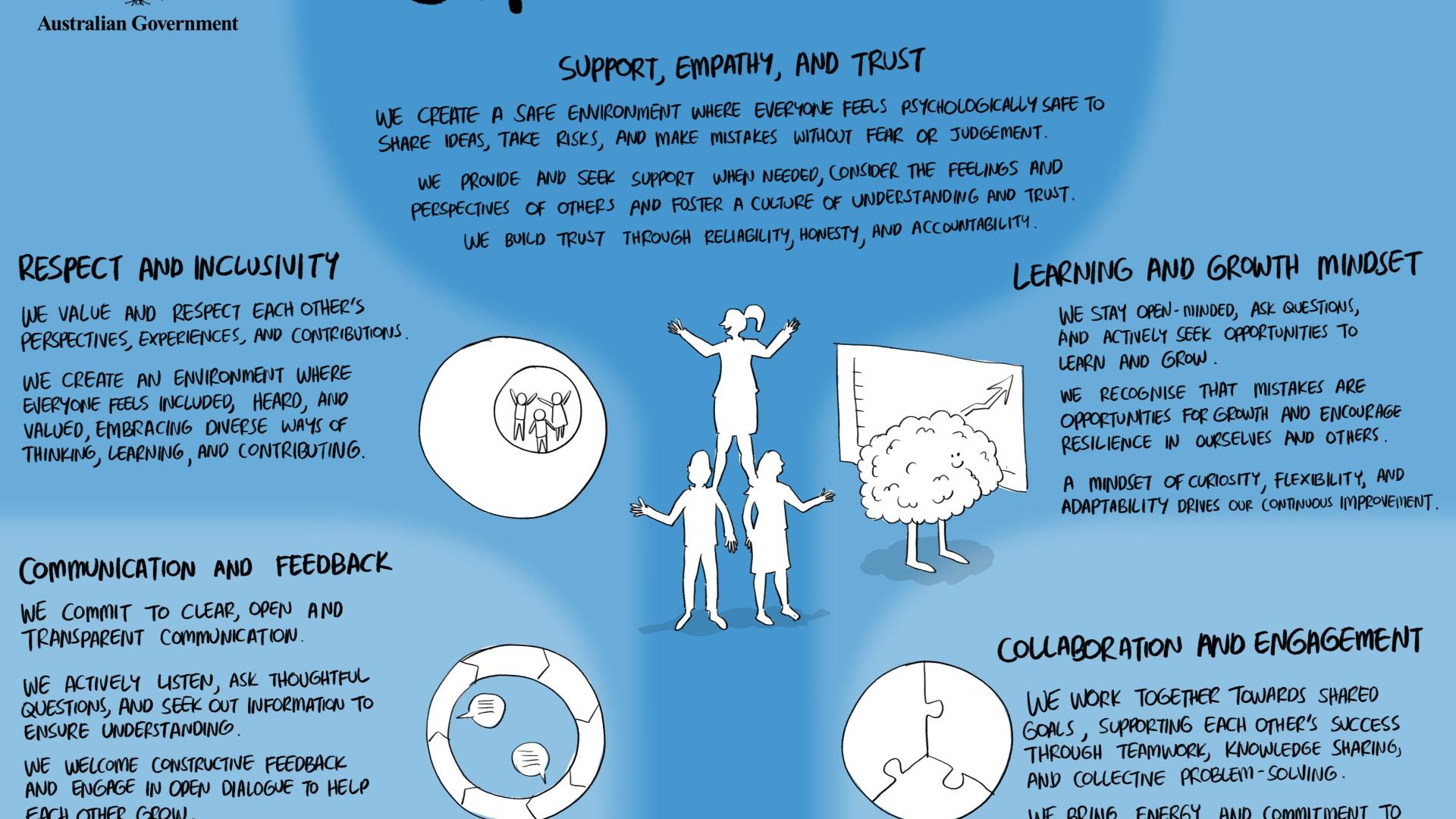Aoife Sheehan, Leadership and Graduate Development I APS Academy
As the 2025 intake of APS graduates nears the end of their APS Graduate Development Program, many have just completed a Human Centred Design (HCD) Graduate Challenge. Rather than a competition to deliver quick policy fixes, the Challenge asked graduates to explore complex, often ambiguous issues faced by public service employees using HCD methods. It was a chance to learn about and then practise listening, prototyping, testing and iterating. It wasn’t about delivering a perfect solution, but to learn a craft they can use again and again.
HCD is increasingly embedded in government practice because it helps teams reframe problems from the lived experience of customers and staff. It is seen globally as a practical way to design services, policies and digital tools around real needs. Interviews, journey mapping, rapid prototyping and testing help reduce risk and increase usefulness. Agencies find that when staff use these methods, they reach clearer insights faster and avoid large investments in the wrong solution.
For our graduates, the Challenge was intentionally process-led. Over several weeks, they conducted user research with APS colleagues and stakeholders, mapped tensions and assumptions, and submitted their findings in creative formats. The emphasis was on curiosity and craft, asking better questions, reflecting on insights, and growing personally while applying the tools. By practising components of the HCD cycle in a safe, supported environment, graduates gained the confidence to transfer those behaviours into future policy and program work. This is exactly the kind of capability uplift the APS Academy aims to support through this program.
HCD is also a language for collaboration. Graduates reported that the Challenge helped them break down technical jargon and invite diverse perspectives into the room, including policy, program, delivery and service design, so multidisciplinary teams could make decisions with shared evidence. Government organisations that have documented HCD case studies often highlight this benefit: better inclusion, clearer problem definition, and solutions that survive implementation because they were shaped by real user feedback.
Graduates who can seed HCD practice in their teams, by mentoring others, running small tests and advocating for evidence-led iteration, contribute to a public service that learns faster and designs more effectively for Australians.
As these graduates return to their agencies, the real work begins: taking HCD beyond the Challenge and into everyday policy and program cycles. The APS Academy’s role, through cohort-based social learning, practitioner-led learning, practice spaces and cross-agency connections, helps ensure those individual achievements become system-level capability.
If the recent cohort’s reflections are any guide, the Graduate Challenge has done more than teach methods. It has shaped a mindset that sees problems through people’s eyes and treats design as a craft.
This is all part of building an APS that puts people and business at the centre of policy and services.
Looking ahead: The 2026 APS Graduate Development Program
The 2025 HCD Graduate Challenge wasn’t a standalone activity. It was the culmination of 8 learning sprints that built knowledge, confidence and curiosity across the year. Each sprint layered new skills and perspectives, preparing graduates to approach complex problems with empathy, creativity and rigour. The Challenge was a showcase of what’s possible when learning is active, applied and connected to real work.
As we wrap up this year’s program, planning is already underway for the 2026 APS Graduate Development Program. We are taking what we’ve learned from graduates, practitioners and agencies, and refining the experience to meet the evolving needs of the public service. That means staying responsive to shifts in government priorities, community expectations and the ways we work together.
Register and find out more
The 2026 program will again offer cohort–based social learning, practitioner-led learning, practical challenges and cross-agency collaboration. All of this is designed to build the kind of capability the APS needs now and into the future. If you're curious about what’s coming, or want to explore how your agency can get involved, reach out to the team. We would love to hear from you.





